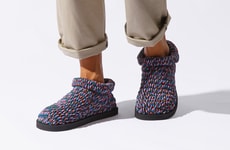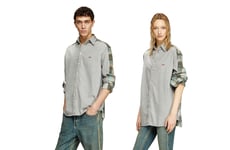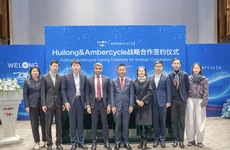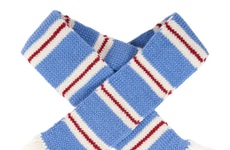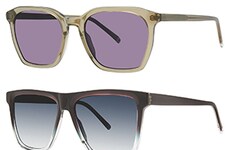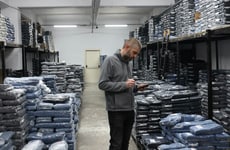75 Innovations Redefining the Carbon Impact of Fashion
Initiatives that Present Greener Solutions
Jana Pijak — May 21, 2025
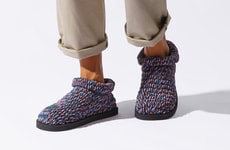


As consumer awareness around climate change grows, fashion--a historically carbon-intensive industry--is undergoing a major shift. From sustainable textiles to carbon-capturing technologies, the industry is embracing innovation to meet both climate goals and changing consumer values.
Circularity is the New Luxury
Fashion brands are increasingly prioritizing circularity to curb emissions associated with overproduction and waste. Circular fashion platforms like LoveYourClothes by Fashion Takes Action, and clothing recycling initiatives like 'UNtrash It' -- a recent partnership between Uniqlo, Piece of Cake Moving and SuperCircle -- are making it easier for consumers to return, resell, or repair garments. Moreover, innovations like pre-loved designer tote platforms and diversity-focused thrift brands ensure second-hand fashion is stylish, accessible, and inclusive, while circular textile ecosystems and textile dyeing partnerships are also streamlining closed-loop production.
Material Innovation to the Rescue
Reducing fashion's carbon footprint starts with the materials. 2025 has seen a rise in biomaterial range expansions and sustainable fibre innovations, such as plant-based silk fabrics, bio-derived denim fibers, and cork foam footwear. Companies are scaling these initiatives with increased funding and material innovation hubs that focus on sourcing regenerative and low-emission raw materials. Meanwhile, garment life extension partnerships and shoe recycling programs illustrate how brands are addressing end-of-life waste—an often overlooked but major source of emissions.
Smart Design, Sustainable Impact
Fashion brands are pushing the boundaries of innovation in both design and marketing, rethinking how collections are built for a more sustainable future. Concepts like modular wardrobe capsules and durable children’s apparel are engineered for longevity and adaptability. Forward-thinking collections--such as those centered on eco-friendly materials or reinvented denim--also showcase how style can evolve alongside environmental responsibility, while high-end pieces made from upcycled materials and responsibly sourced leather highlight a fusion of sustainability and luxury. Breakthroughs in material science are also driving change, with carbon-negative pigment shirts, algae ink tees that actively store carbon, and accessories crafted from upcycled yellowtail fish leather—all proving that innovation can make sustainability a core part of the fashion industry's future.
Tech-Powered Transparency
To combat greenwashing, many companies are turning to tech for accountability. New tools like fashion-focused environmental accountability platforms, climate footprint calculators, and AI-driven textile recycling initiatives empower both brands and shoppers with better data on emissions. Consumers are quickly becoming more discerning about environmental claims, driving a greater demand for transparency and accountability, with industry reports on greenwashing pressuring fashion brands to adopt clearer, verifiable standards. In response, initiatives like third-party sustainability vetting and expert-led panels are gaining traction, particularly among digitally native and mission-driven companies.
As a result, brands are increasingly embracing innovation to align with regenerative practices and long-term climate goals, Some examples include collaborative efforts in regenerative fashion, sustainable retail strategies, and advances in eco-conscious manufacturing that reflect a broader shift toward responsible business models. Ethical impact is also showcased through innovations like apparel lines that support advocacy groups and low-emission shipping alternatives.
Educating and Engaging Consumers
Fashion is also becoming a tool for climate education, whether through sustainable fashion conferences, like the recently hosted Fashion Futures Dubai, or sustainable luxury documentaries like the Prada Re-Nylon Collection's documentary series, created in collaboration with National Geographic CreativeWorks.
Experiential retail is also undergoing a transformation, with a variety of concept stores focused on eco-conscious fashion, showrooms highlighting sustainable technical apparel, and interactive digital campaigns that support charitable causes. These examples further drive the idea of transparency, purpose, and immersive experiences.
The Future of Fashion is Regenerative
From low impact manufacturing practices that reduce chemical waste to eco-conscious footwear materials, fashion's carbon conversation is shifting from harm reduction to climate-positive innovation. Today’s consumers expect more than sustainability and want accountability, with an affinity for brands that embrace transparency, share emissions data, use regenerative materials, and deliver measurable impact.

